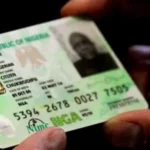Georgia’s meandering rural roads and crowded city streets may be wonderful experiences for motorcyclists, but they also present inherent risks. Unfortunately, motorcycle riders are 28 times more likely to die in a fatal driving accident than other drivers on the road.
Anti-lock braking systems (ABS) are a significant advancement in automobile safety. These innovative braking technologies provide drivers with more control and stability on the road. In this article, we will go over the basics of ABS. However, if you or a loved one has been involved in an accident, you should consult some of the best Lawbike Motorcycle Injury Lawyers immediately.
How ABS works
Before you can comprehend how it affects crash rates, you need to understand anti-lock brakes. Its principal duty is to control brake pressure and keep the wheels from locking up during rapid or harsh braking. Drivers can prevent sliding and keep steering control even on slick roads.
ABS revolutionized braking systems and improved overall car safety. When you slam on the brakes, sensors on each wheel detect the imminent lockup. In reaction, the ABS control unit changes the brake pressure quickly by intermittently releasing and reapplying the brakes. This regulated “pumping” movement prevents the wheels from entirely stopping their revolution, hence maintaining traction.
Also Read N: Mastering Sekiro: Shadows Die Twice – Essential Tips and Tricks
Advantages of ABS
So, how can anti-lock brakes benefit you? Consider traveling in inclement weather and suddenly discovering a patch of ice. Without ABS, hitting the brakes can cause the wheels to lock up and your car to lose control or slide. However, ABS allows you to navigate around obstructions and prevent potential crashes, which might result in personal injury claims.
Furthermore, ABS improves braking efficiency. ABS inhibits wheel locking, so your tires grip the road better, resulting in shorter stopping distances. This benefit can be life-saving in crucial conditions, especially when every inch matters. ABS provides a balanced combination of controlled deceleration and mobility in crises, lowering the risk of crashes and automobile accidents.
Also Read P: Bright and Bold: How Digital Directory Boards Enhance Your Visitor Experience
Let us look at the numbers.
According to statistics published by the Insurance Institute for Highway Safety, anti-lock brakes do avoid accidents and save lives. Studies of fatal collisions, insurance claims, and test track performance revealed the following:
- Motorcycles with optional ABS had a 31% lower fatal crash rate than bikes without it.
- Bikes with ABS generate 20% fewer collision insurance claims than bikes without.
- Anti-lock brakes on wet and dry conditions help both novice and experienced riders stop faster on the test track.
More than 5,000 motorcyclists perished on American roadways in 2015. Having an ABS is one approach to reducing those numbers.






